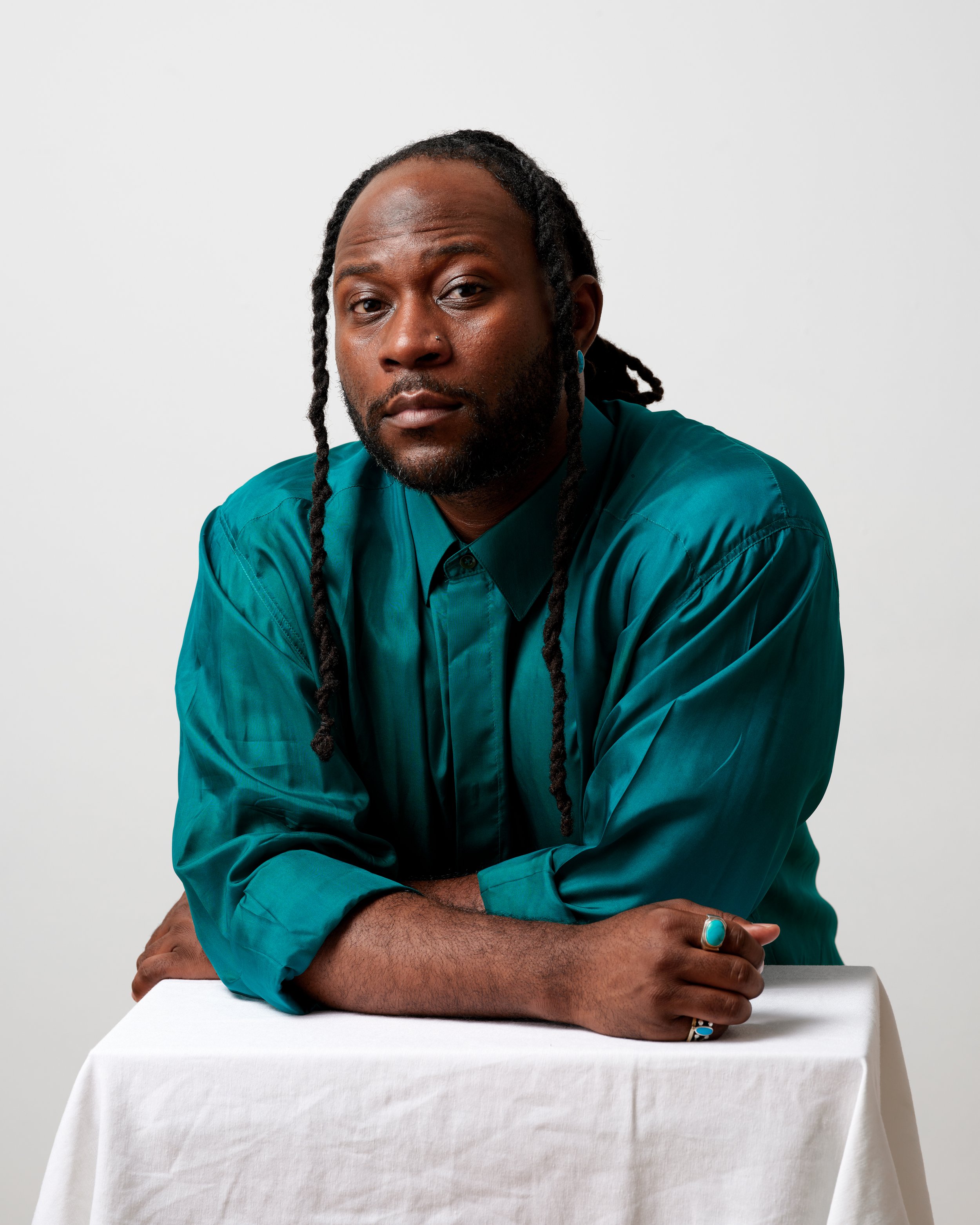Aluel is a visual storyteller of Sudanese ancestry. Her first name [pronounced ah-luel] comes from a Nilotic tradition of naming children after the cows they tend to. Aluel is the name given to a cow whose color is dark-reddish brown. Her father, Bol Kuanyin-Agoth was born in Madol, Gogrial and her mother Abuk Lang Juk is from a nearby village in Aweng, in the Bahr el Ghazal region of South Sudan. Both were the children of prominent chiefs, Kuanyin Agoth and Benjamin Lang Juk. Aluel’s father has been teaching her the oral histories of his generation and of a distant past. She has been collecting memories of a Sudan in the early twentieth century, which saw the destruction of traditional African societies with the coming of British colonial rule. Her father began his formal education in 1952 at Tonj Elementary. He then went on to attend Bussere Intermediate and Rumbek High school then the University of Khartoum before pursuing an advanced degree in Economics in Ohio and Texas in 1972. His experiences throughout these years were largely shaped by Sudan’s political upheaval as a consequence of policies enacted under British colonial rule.
Her favorite stories are of the thirty-five mile journey her father took to collect enough cows to marry her mother, their attempts to elope when another suitor offered her mother’s father a higher dowry, private conversations between liberation leaders that took place in 1982 and the story of the Sudan People’s Liberation Movement led by John Garang, Kerbino Kuanyin Bol (no relation) and other freedom fighters, as well as her father’s aspirations for a truly independent and self-sufficient South Sudan.
She has recently read Sudan's Blood Memory: The Legacy of War, Ethnicity, and Slavery in Early South Sudan by Stephanie Beswick, which narrates the oral histories and migration stories that created modern Sudanese societies in present day South Sudan. She is inspired by content that celebrates the diversity of human experience, especially the celebration of multiple selves—both within herself and the people she sees herself in. Her poetry, short stories, and digital aesthetic are centered around blackness—its exploration, protection and ownership. As a student of her new country, which gained independence from the Sudanese government on July 9, 2011, she wants to use her writing to contextualize the complex issues of nation building South Sudanese communities face both at home and in the Diaspora.
Aluel believes she inherited her creativity from her grandmothers Gön Acuil and Ayel 'Ayeldit' Deng. Women in South Sudan have contributed to the cultural and intellectual legacy of their people. She hopes to work with other Sudanese academics to document the stories of the women who also resisted, sacrificed, and contributed to the various liberation movements of their time. She is interested in filmmaking, performing arts, creative writing and developing a digital archive for future generations that will have access to the diverse collection of historical documents, audio and visual files celebrating the diversity of thought, experiences, and identities informing the 'New Sudan|ese' who also go by the name South Sudanese.
Aluel is also eager to learn from those already contributing to efforts to build cultural institutions in South Sudan such as: The National Archives, national museums, and the South Sudan Theatre Organization, among others. It is her hope that these ‘lone archivists’ may find more company and more space in South Sudan’s future.
Aluel received her BA in Sociology in 2015 from Loyola University Chicago and is looking forward to celebrating oral history at OHMA.







